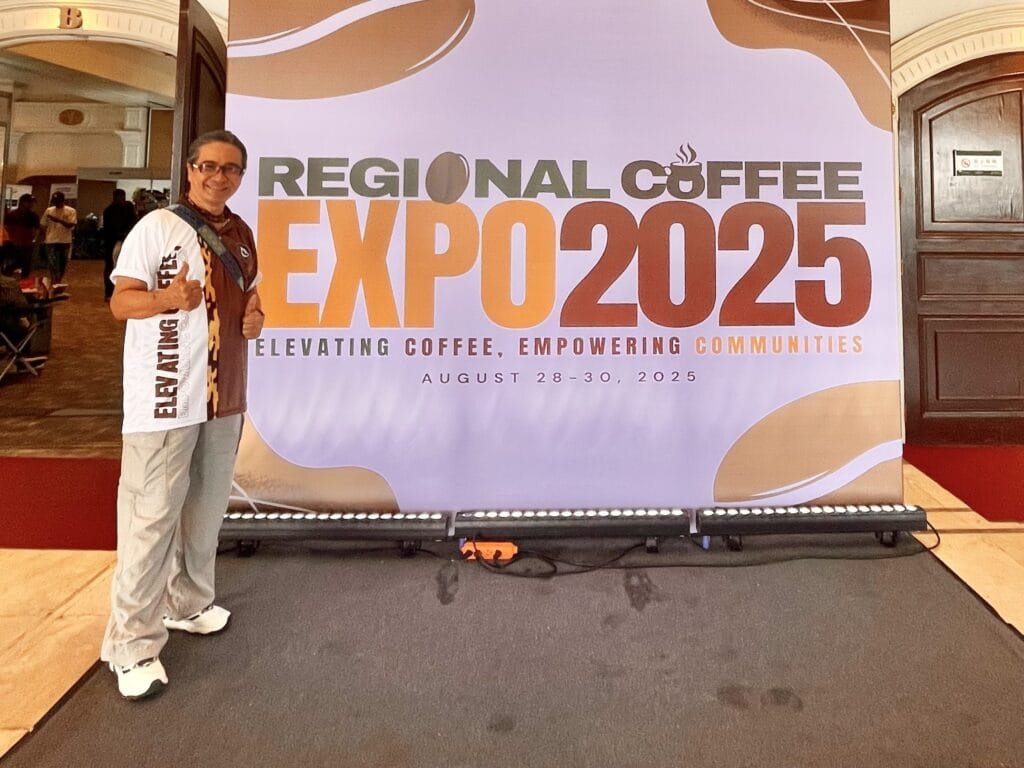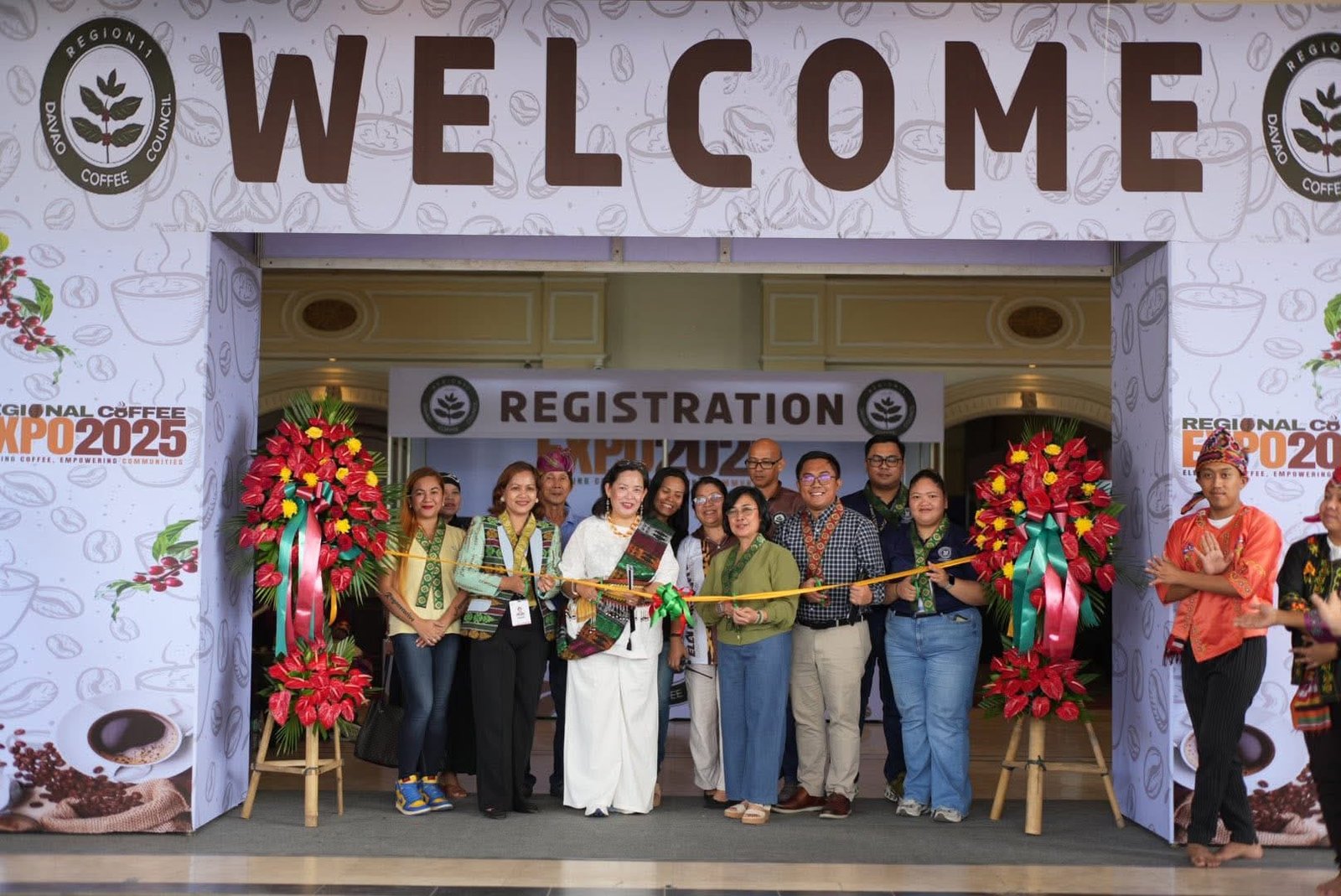FROM FARM TO FUTURE: THE TRANSFORMATIVE IMPACT OF DRCE 2025 ON MINDANAO’S COFFEE SECTOR
28-30 August 2025 — The Davao Regional Coffee Expo 2025 (DRCE 2025) has left me deeply moved—not only by the knowledge shared, but by the spirit of unity that flowed through every session, exhibit, and conversation. I witnessed farmers embrace new tools for climate resilience, women take their rightful place as leaders in the coffee value chain, and researchers bridge science with the lived realities of rural communities. What struck me most was how coffee became more than a crop; it became a story of culture, resilience, and collaboration. Listening to farmers, entrepreneurs, baristas, and academics share their hopes and innovations, I saw a vision of a future where coffee sustains both livelihood and community. For me, DRCE 2025 was not simply an event—it was a movement planting seeds of empowerment, sustainability, and peace, with ripples that will continue to transform lives across Davao and beyond.
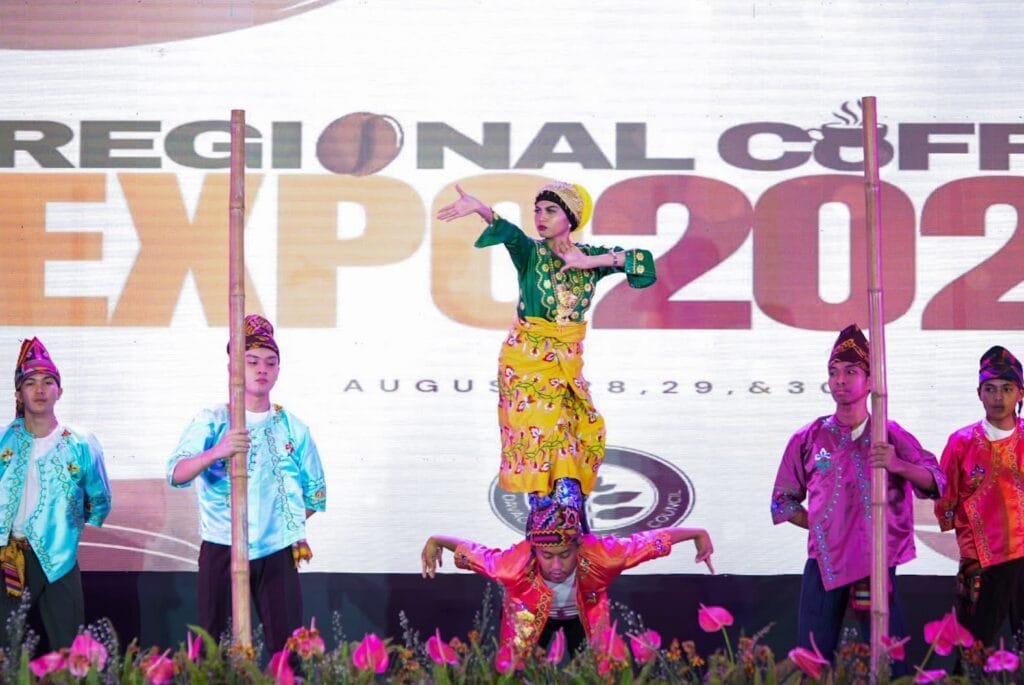
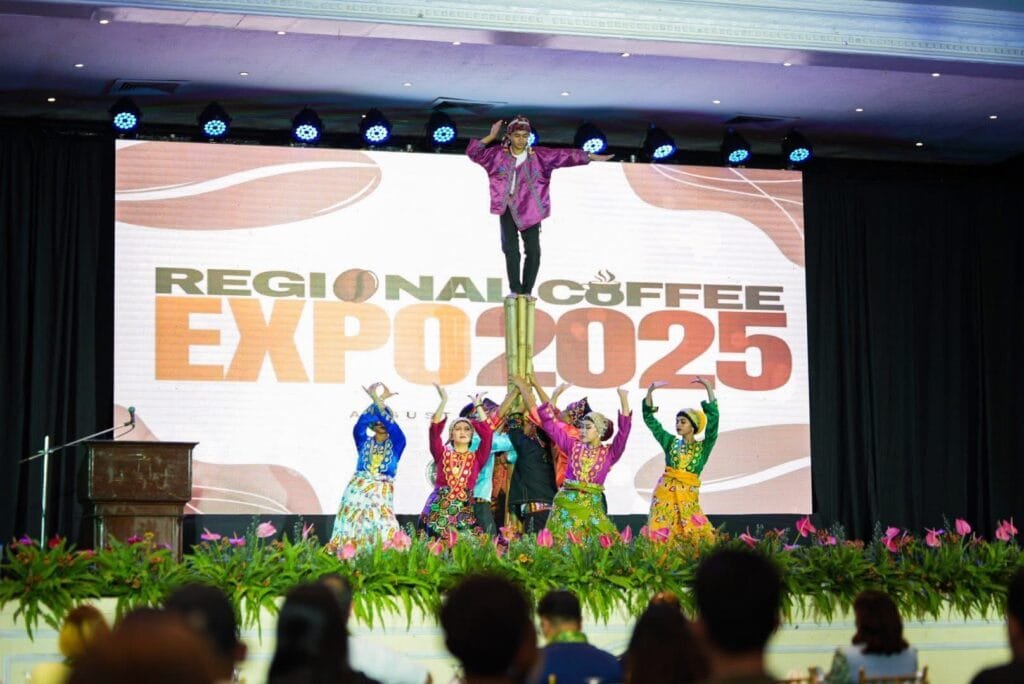
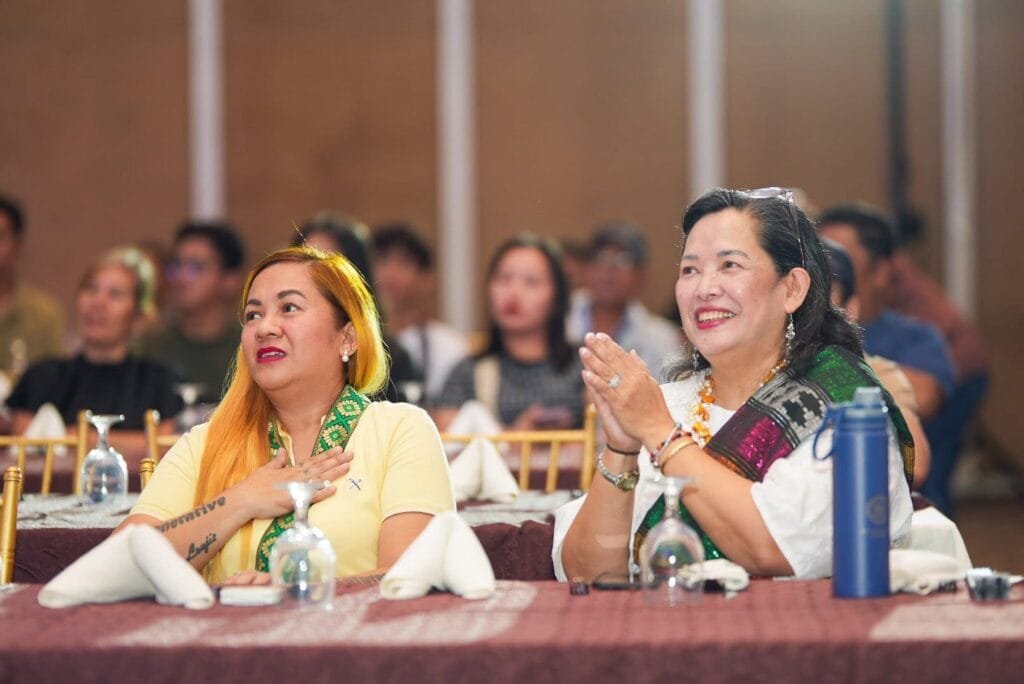
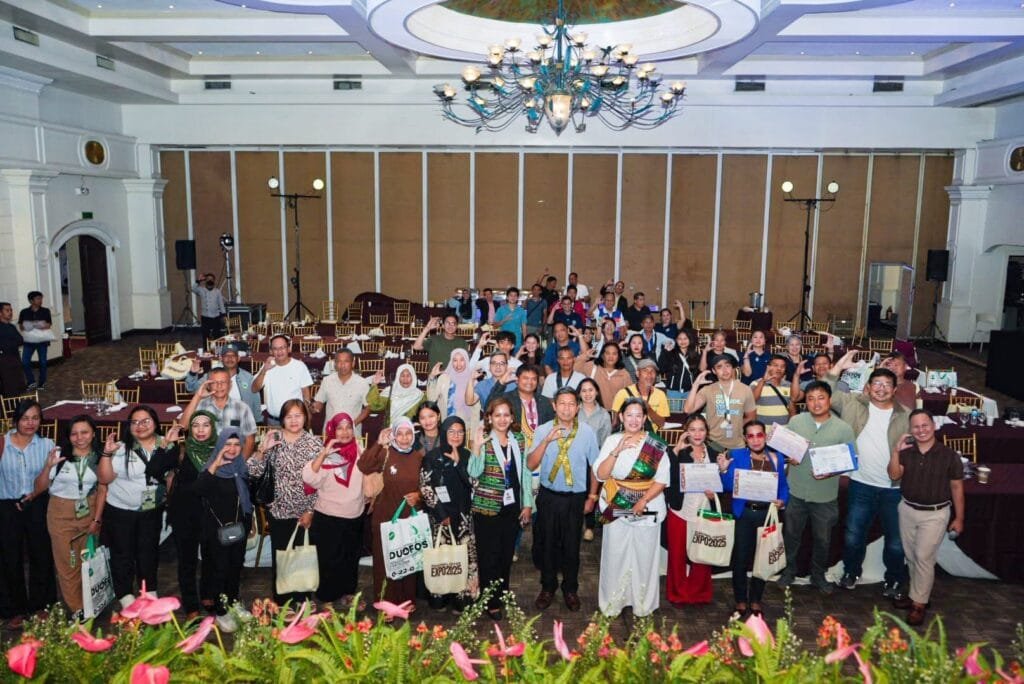
The Davao Regional Coffee Expo 2025 (DRCE 2025) has just concluded—a three-day convergence of farmers, entrepreneurs, academics, government agencies, and coffee enthusiasts committed to advancing the coffee industry in our region. Organized by the Davao Region Coffee Council (DRCC), under the steady leadership of its President, Joji “Kasunayan” Pantoja, this year’s expo has been transformative.
As I look back on each day, I am struck not only by the depth of conversations but also by the spirit of collaboration that permeated the entire event. Kudos to the members and volunteers of DRCC who worked tirelessly to bring this together—their collective effort has made DRCE 2025 a beacon of hope and direction for our coffee sector.
Day 1: Elevating Coffee, Empowering Community
The opening day was alive with cultural presentations, a ribbon-cutting ceremony, and the vibrant energy of exhibits showcasing our region’s best. It was more than just a ceremonial beginning; it was a reminder that coffee is rooted in culture, community, and the land itself.
One of the highlights for me was seeing Joji take the stage alongside Dr. Phoebe Nemenzo-Calica of Davao Oriental State University to speak on “Future-Proofing Coffee: Research and Genetic Innovations for Climate Resilience in Mindanao.” Listening to her emphasize the urgency of climate adaptation, I felt proud. She reminded everyone that coffee research is not merely technical—it is about securing the survival of farming families.
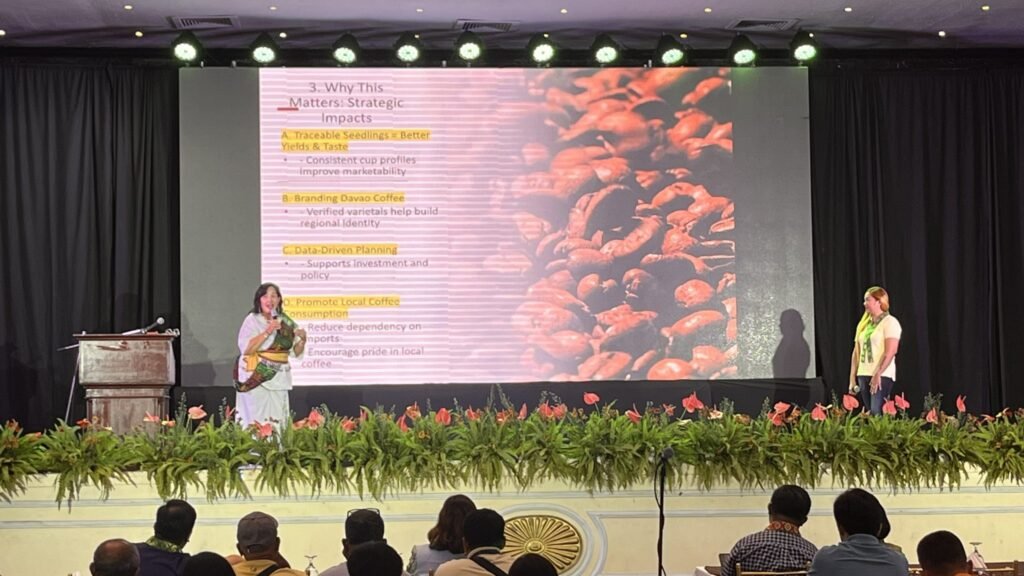
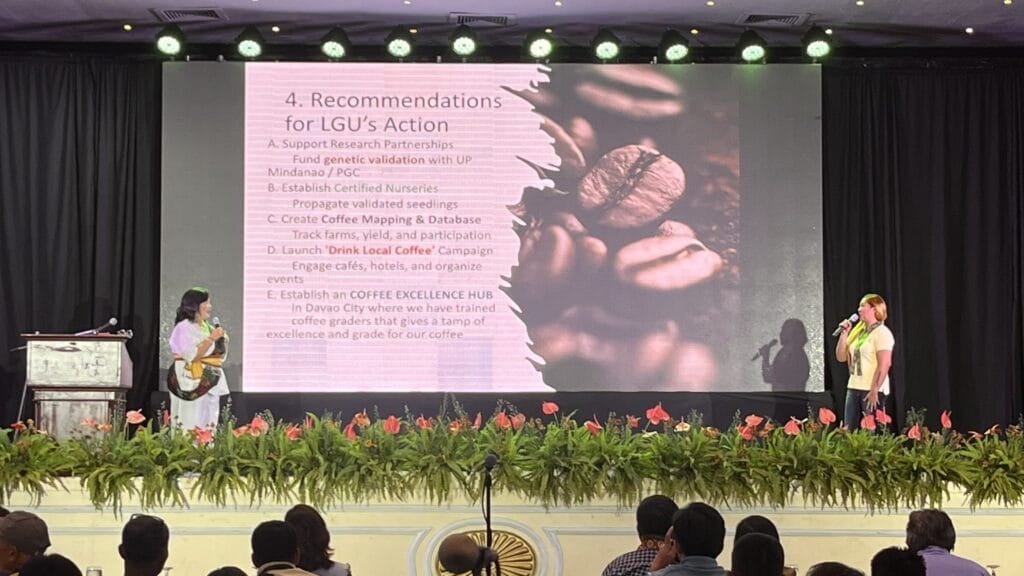
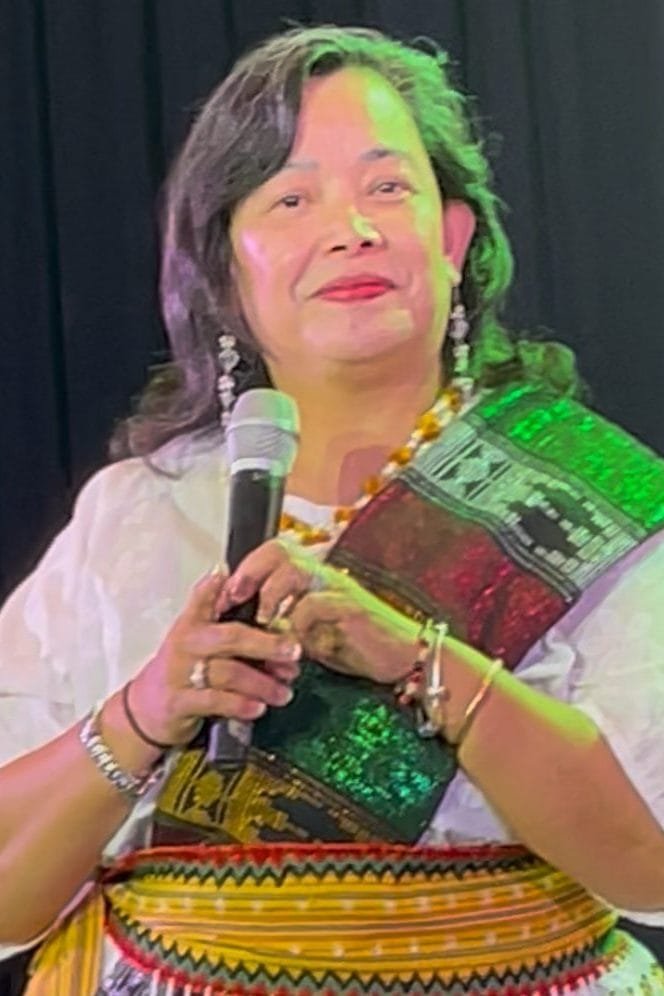
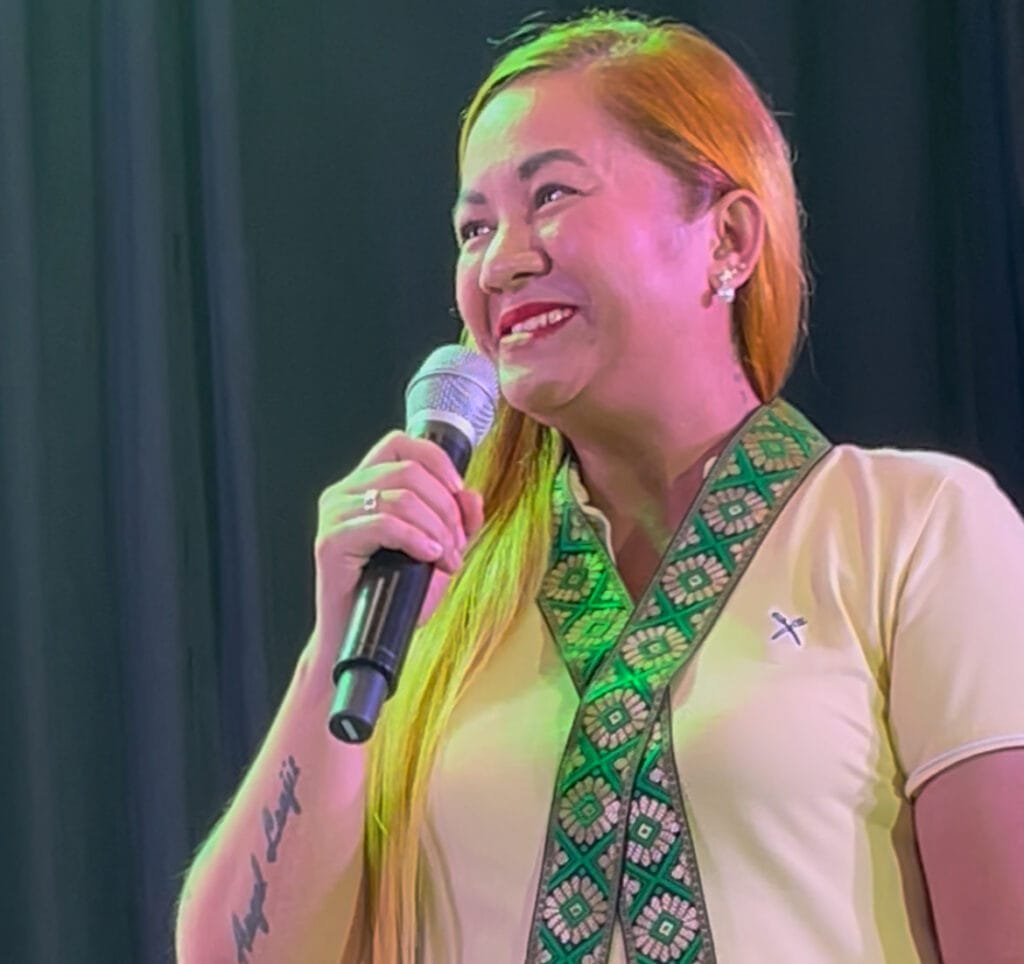
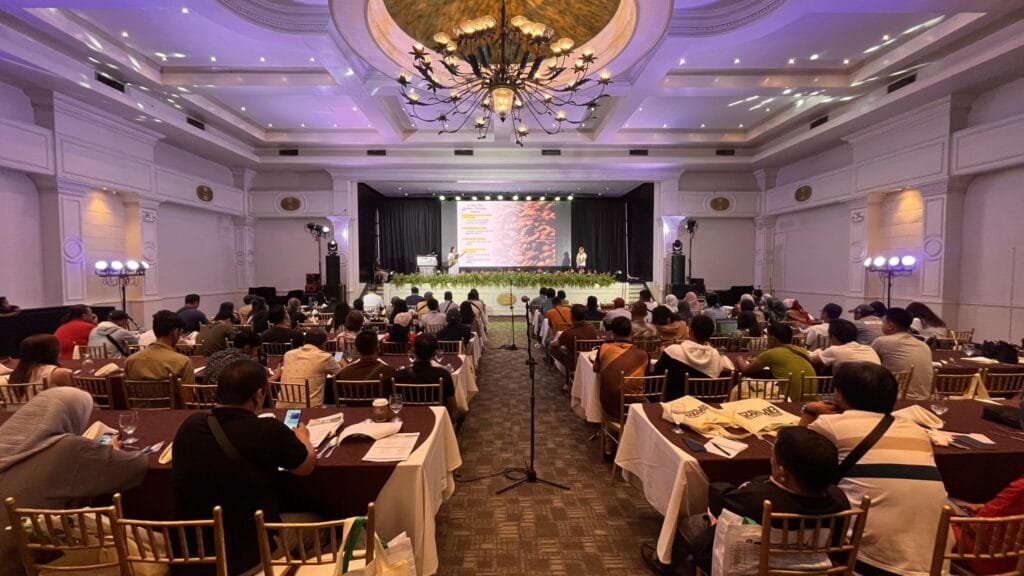
I overheard a farmer from Bukidnon whisper to his seatmate after Joji’s talk: “Kung hindi tayo maghanda sa pagbabago ng klima, mawawala ang ani natin. Mabuti na lang may ganitong pagtitipon para matuto kami ng bago.” (“If we don’t prepare for climate change, we will lose our harvest. It’s good that we have gatherings like this to learn new ways.”)
Other sessions that day built on this theme of resilience. Ian Asilo gave an overview of the Expo, entitled “Elevating Coffee, Empowering Community,” setting the tone for the gathering. Later, experts shared insights on “Harnessing Technology: The Critical Role of Data Management in Transforming the Coffee Industry” and “Initiatives on Food Security through Regenerative Agriculture.” The day closed with discussions on the “Philippine National Standard on Green Bean Grading” and “Adopting a Culture of Quality, One Bean at a Time by Having GAP Certification.”
Day 1 was a powerful reminder that resilience, quality, and community empowerment must go hand in hand if our coffee sector is to thrive.
Day 2: Women at the Heart of Coffee
The second day placed the spotlight on Women in Coffee Production, and I was deeply moved by the testimonies of women entrepreneurs, processors, and baristas who are shaping the future of coffee. Sessions carried titles like “Women Entrepreneurs in Coffee,” “Women Coffee Processors,” and “Women Barista.” Each panel was filled with stories of perseverance, innovation, and leadership.
Hearing from entrepreneurs such as Jollibe Lee Salazar of Bean O’Clock and Maria Celine Domingo of Kohi Mame, I was struck by how women are innovating in ways that connect coffee directly to consumers with authenticity and creativity. Baristas like Bai Mardhiya Sinsuat of Spilled Coffee Davao showcased how women are also excelling in the specialty coffee scene.
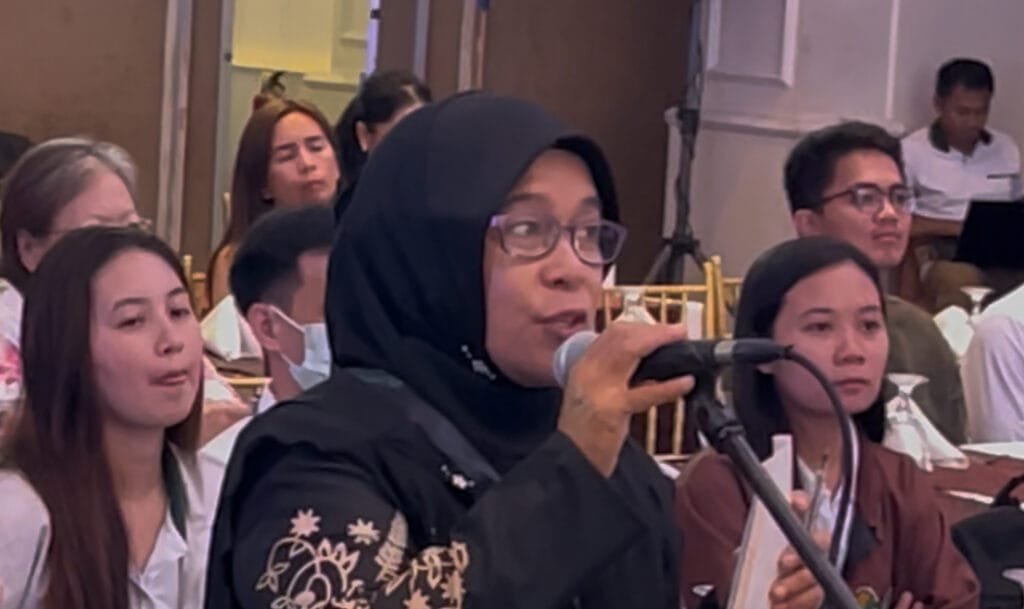
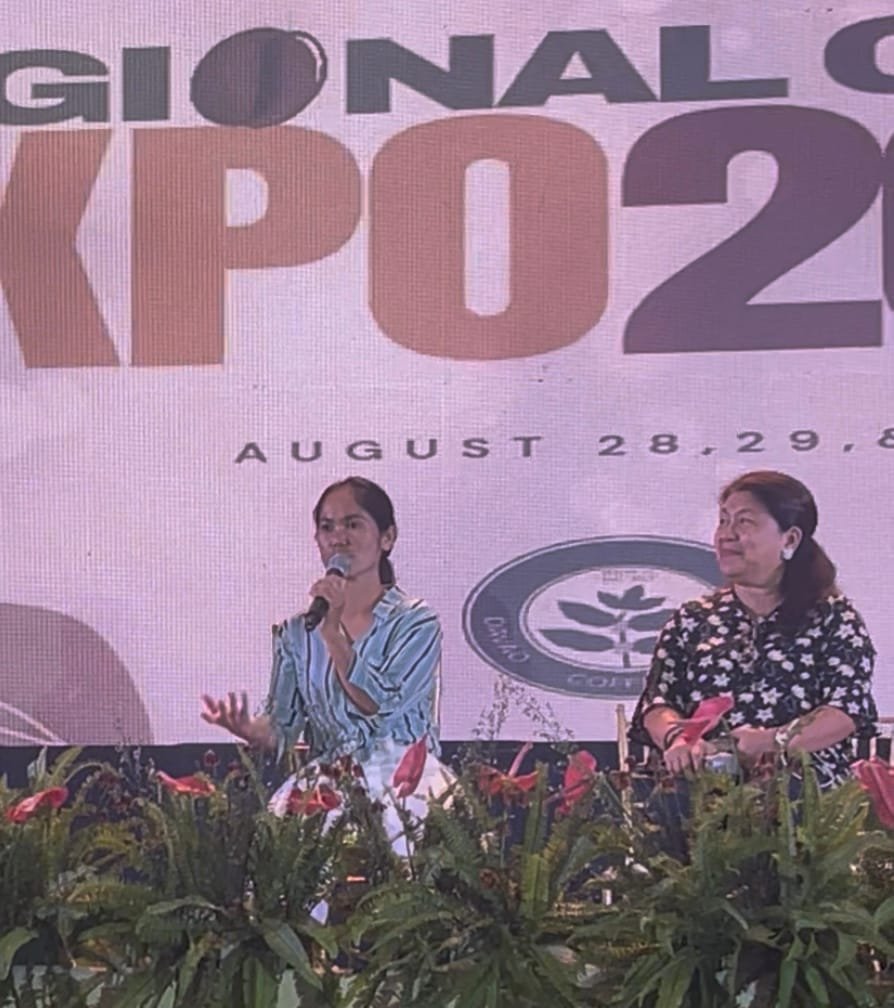
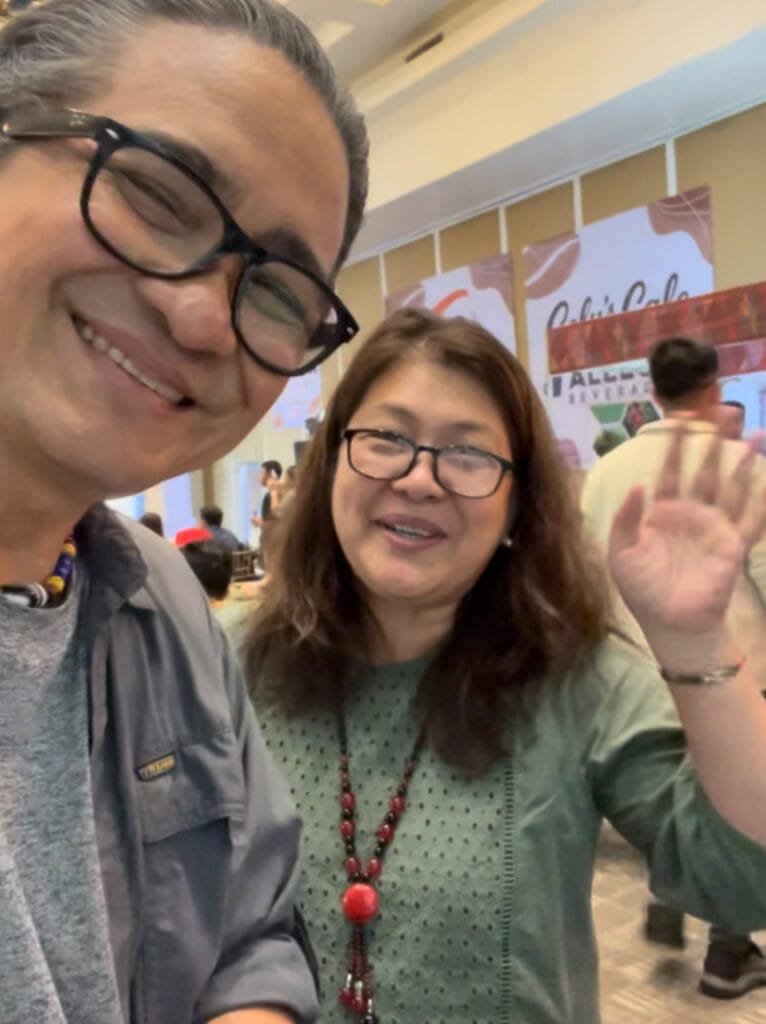

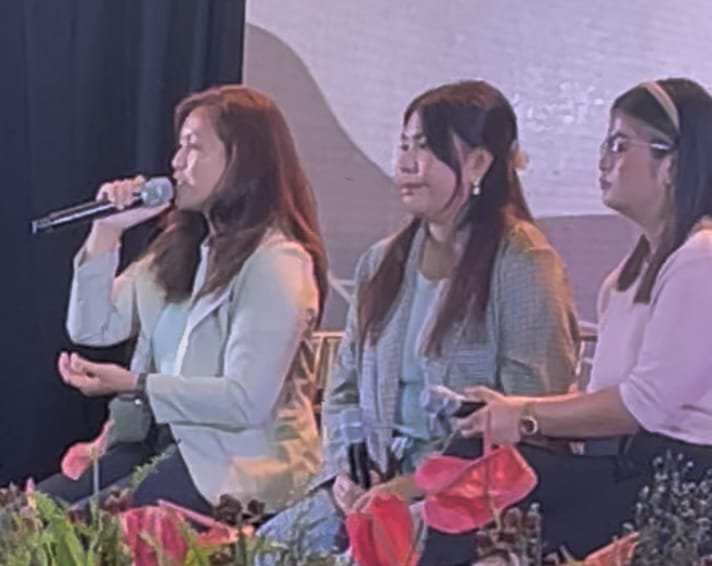
During a break, I asked a woman farmer from Davao de Oro about her thoughts. She smiled and said: “Nakakatuwa kasi dati, hindi masyadong pinapansin ang kababaihan sa kape. Ngayon, kami mismo ang bida.” (“It makes me happy because before, women were not really recognized in coffee. Now, we are at the center.”)
Technical sessions also enriched the day, particularly “Factors that Affect Specialty Coffee and How It Is Priced,” and the tasting activity entitled “Coffee as the New Wine.” A roasting session capped the day, reminding us of the delicate balance between science and artistry that defines coffee.
Day 2 was more than a program segment—it was a celebration of empowerment and recognition of the vital role women play across the coffee value chain.
Day 3: Knowledge, Competition, and Vision
The final day opened with the academe’s voice. Dr. Mel Garcia of La Salle Food and Water Institute offered reflections on the role of research in strengthening the coffee industry. It was a reminder that scientific knowledge and community practice must remain deeply connected.
Meanwhile, the Competition Hall was buzzing with excitement. Over the three days, contests featured “Robusta – Manual Brewing,” “Arabica – Manual Brewing,” “Latte Art – First Timer,” “Latte Art – Non-Professional,” “Duo Barista – Speed Challenge,” and finally, “Coffee in Spirit – Cocktail Mixology.” These competitions showcased not only technical skills but also the creativity and artistry of Davao’s baristas and brewers.
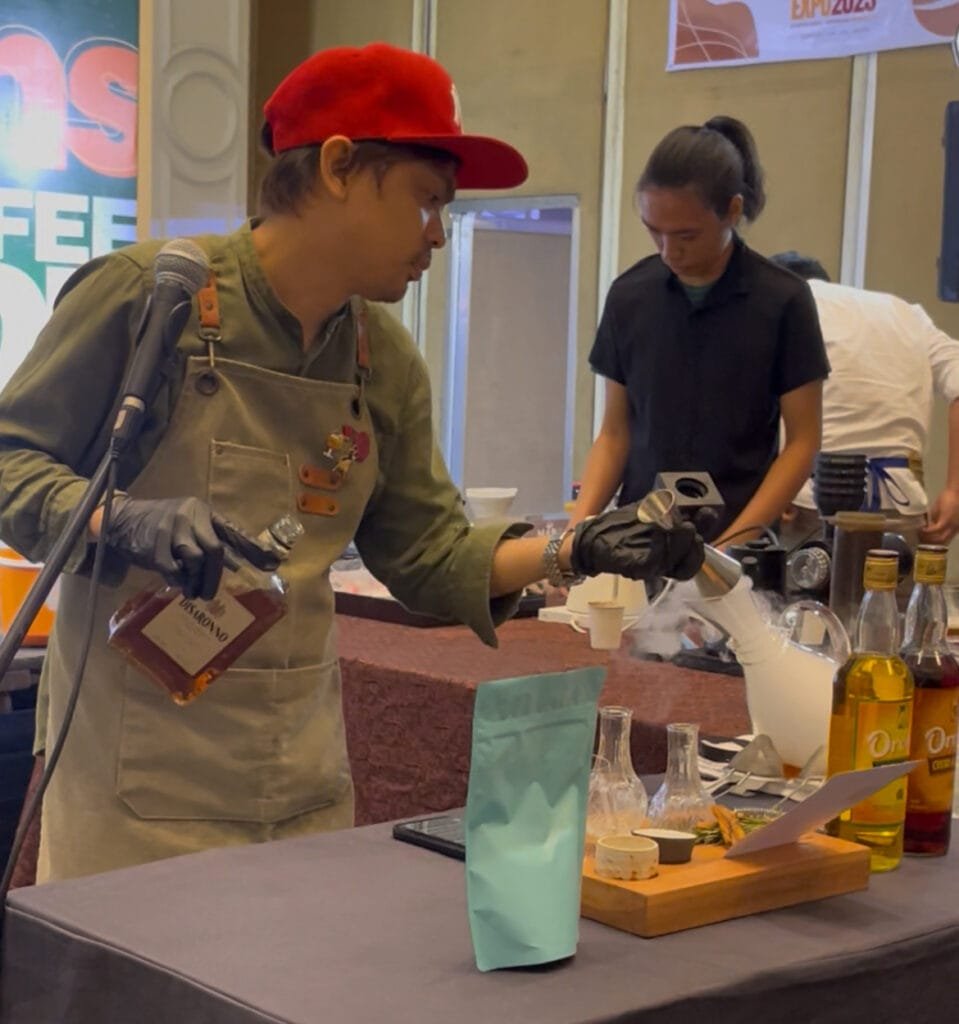
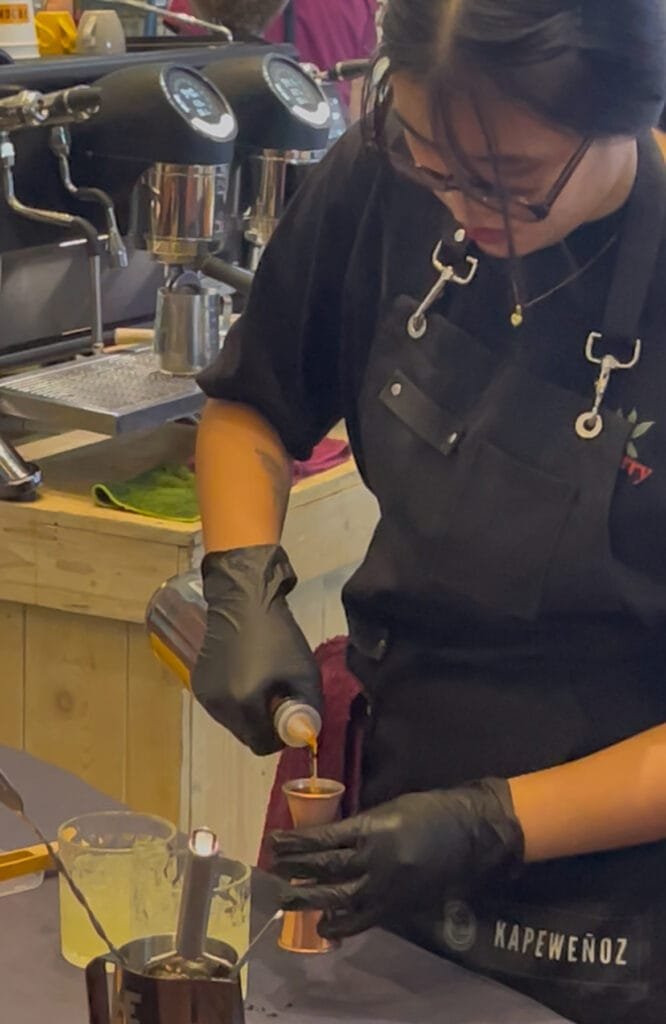
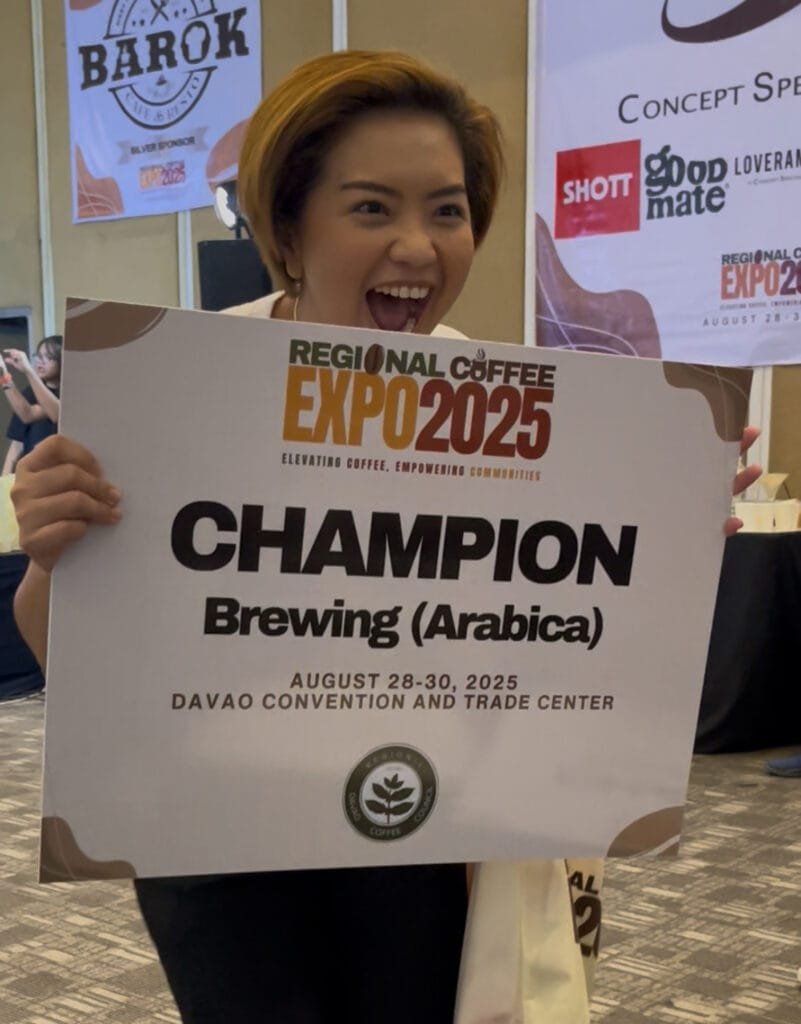
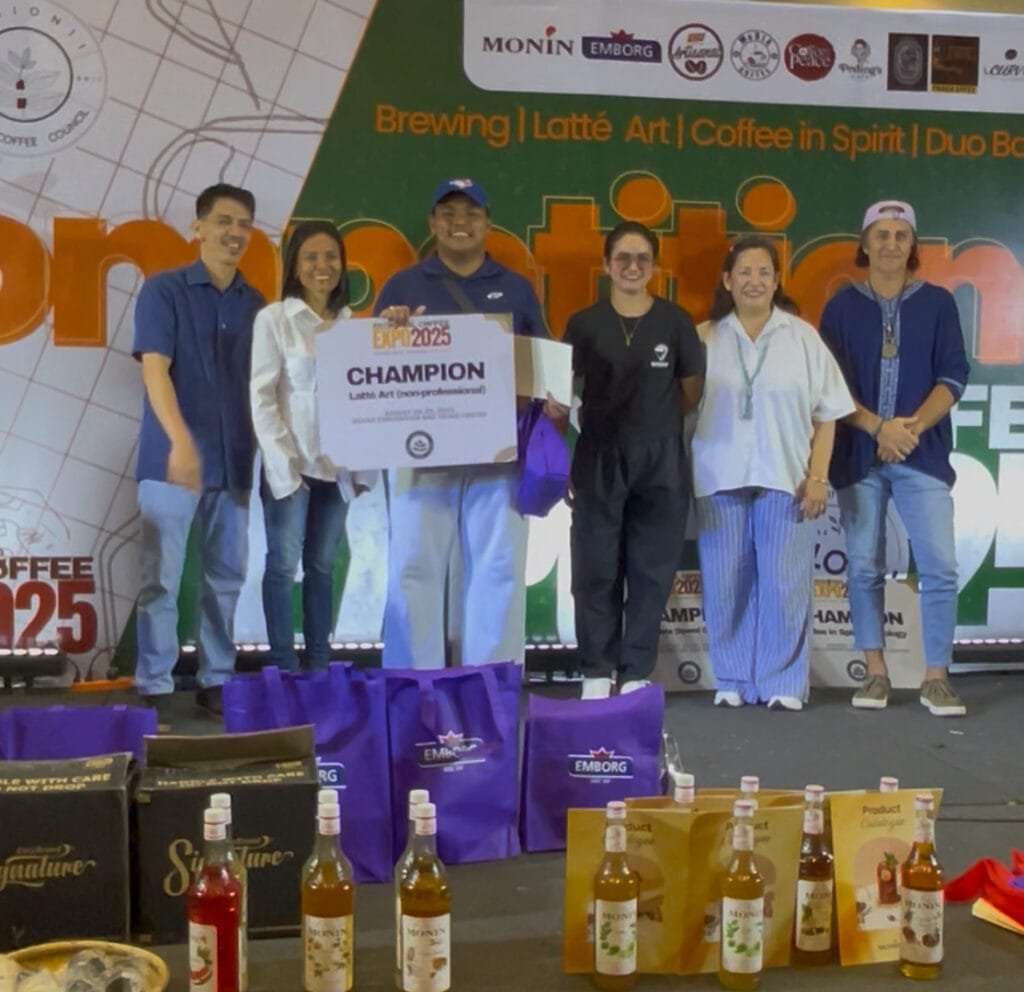
The awarding ceremonies in the afternoon were filled with applause and joy. As winners celebrated, one young farmer who joined the audience said to me: “Nakaka-inspire. Dati ang kape, tinitingnan lang namin bilang produkto ng bukid. Ngayon, nakikita ko kung paano siya pwedeng maging art at negosyo.” (“It’s inspiring. Before, we only saw coffee as a farm product. Now, I see how it can also be art and enterprise.”)
The day ended with closing remarks and the invitation to Regional Coffee Expo 2026. It was both a conclusion and a fresh beginning.
The Impact of DRCE 2025
For me, the true impact of this expo lies in how it speaks to every level of the coffee value chain:
- Farmers gained exposure to new knowledge on climate resilience, regenerative practices, and quality standards that can uplift their incomes and sustainability.
- Entrepreneurs and processors discovered opportunities for collaboration and innovation.
- Academics and researchers linked their expertise to grassroots realities, bridging science with everyday farming life.
- Consumers and enthusiasts deepened their appreciation for coffee as a livelihood, a culture, and a peacebuilding resource.
DRCE 2025 has shown that coffee is not only a commodity—it is a community story, an ecological responsibility, and an economic lifeline.
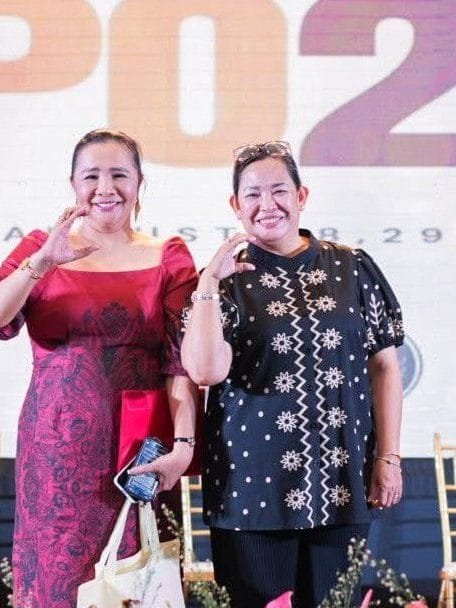
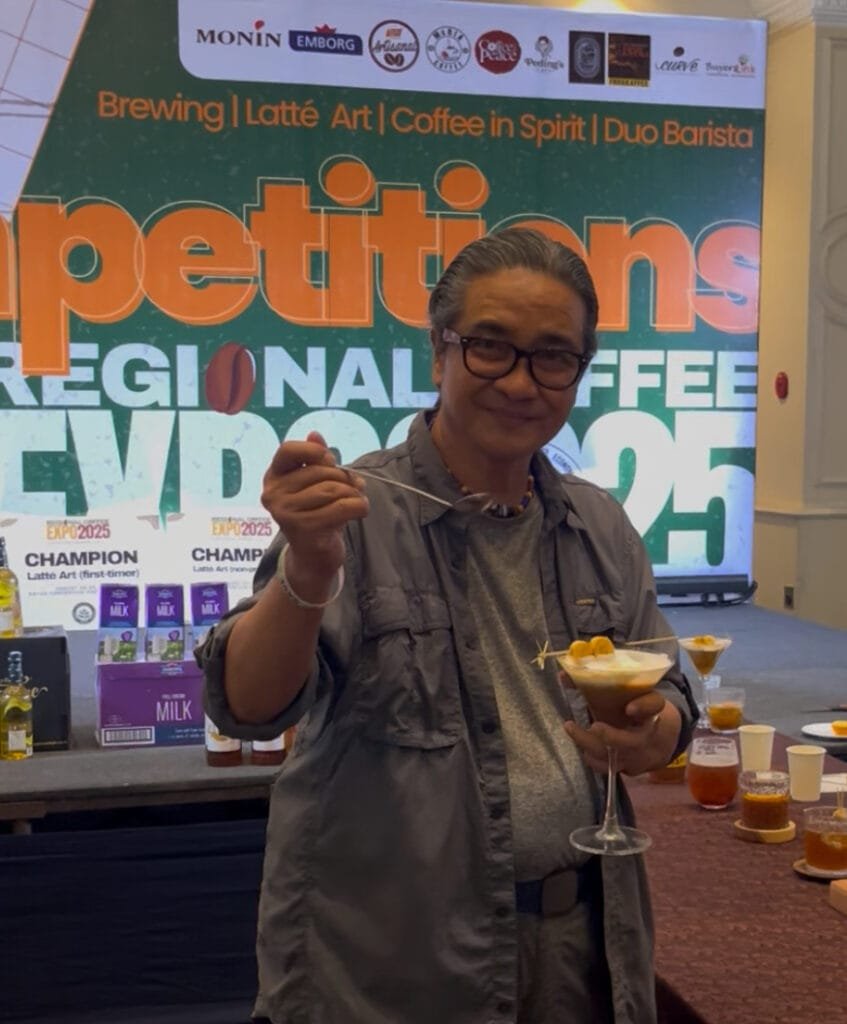
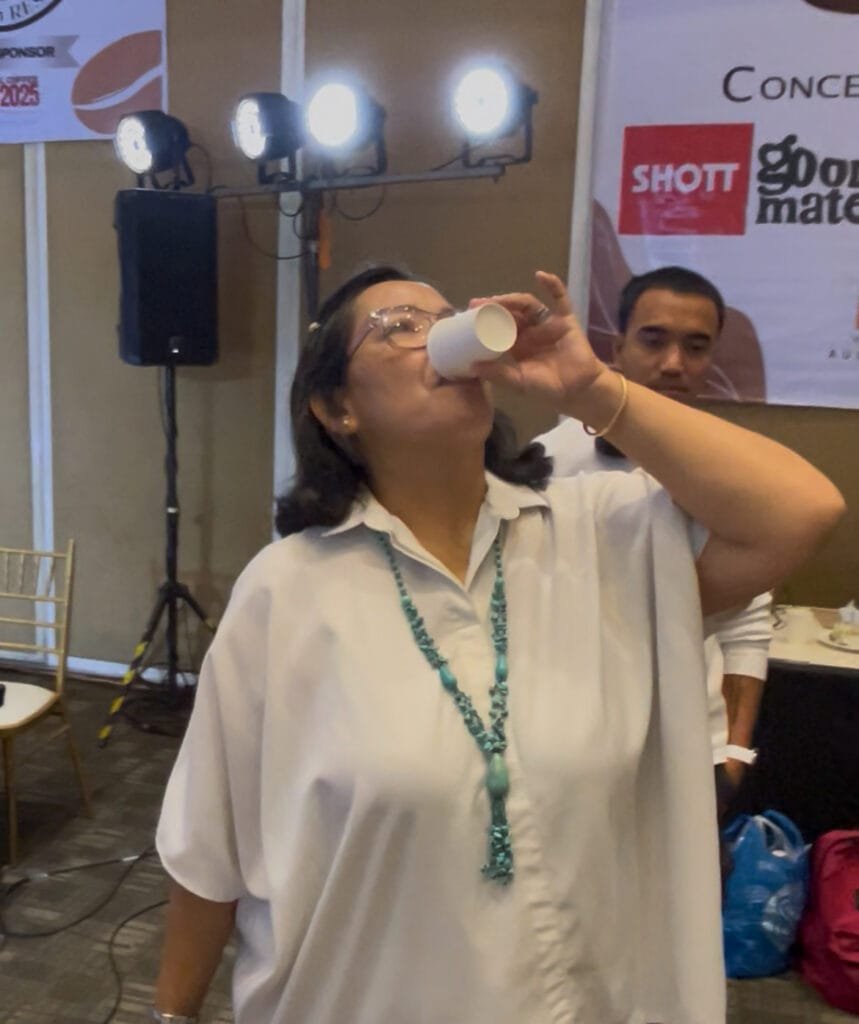
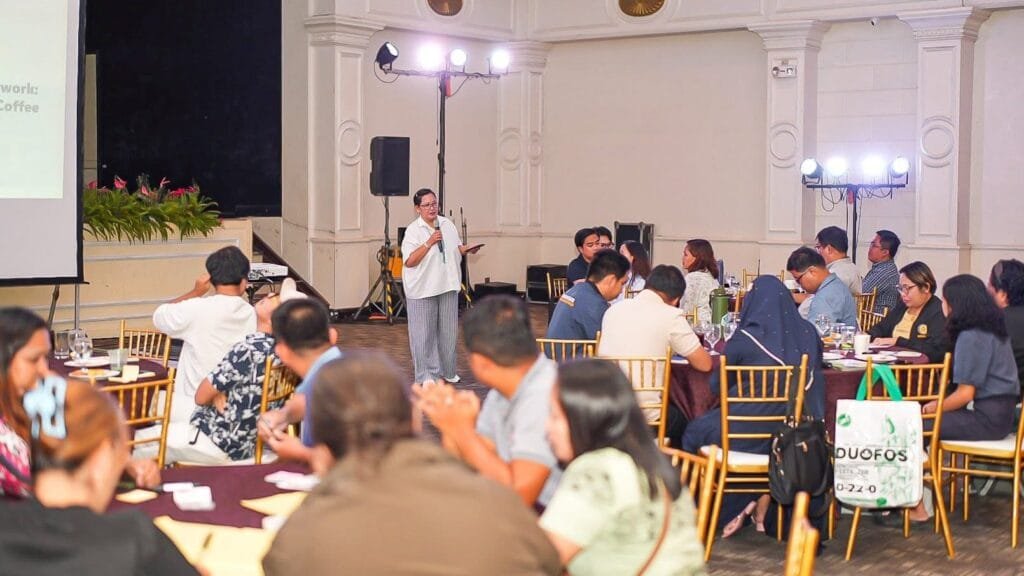
My Personal Reflection
As I walked through the sessions, exhibits, and competitions, my heart swelled with gratitude and amazement. I saw my wife and partner, Joji “Kasunayan” Pantoja, guide the council with wisdom, humility, and vision. Her session on “Future-Proofing Coffee” exemplified her ability to connect global challenges like climate change with the everyday realities of farmers.
Hearing farmers’ voices throughout the expo gave me hope. Their words, their pride, and their renewed sense of belonging in the larger coffee community showed me that DRCE 2025 was not just an event—it was a turning point.
The Davao Regional Coffee Expo 2025 has planted seeds of hope, innovation, and unity. Its impact will ripple across farms, businesses, and communities—not only in Davao but across the Philippines. And for that, I give my deepest appreciation to Joji, the DRCC officers, members, and volunteers. Truly, this was more than an expo; it was a movement.
